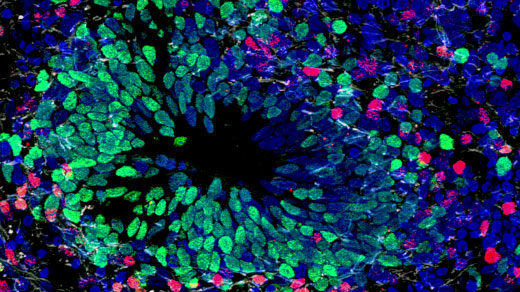Hey there, folks! Get ready to dive into a mind-blowing journey as we explore the incredible possibilities of brain organoids. Strap yourselves in because this article is about to take you on an exhilarating ride!
The Marvels of Brain Organoids Unveiled
Buckle up, my friends, because we’re about to embark on a wild adventure through the fascinating world of brain organoids. These tiny but mighty structures are revolutionizing our understanding of the human brain. Picture this – miniature versions of real brains grown in labs! They may be small, but they pack a punch when it comes to unlocking secrets hidden within our gray matter.
Brain organoids have opened doors that were once thought impossible to breach. Scientists can now study complex neurological processes and diseases without resorting solely to animal models or invasive procedures. This breakthrough technology allows us to gain insights into conditions like Alzheimer’s disease, autism spectrum disorders, and even mental health challenges.
But wait, there’s more! These remarkable creations also offer hope for personalized medicine. By using cells from individual patients’ bodies, scientists can grow customized brain organoids that mimic their unique neural networks. This opens up avenues for tailoring treatments specific to each person’s needs – talk about groundbreaking progress!
A Journey Towards Ethical Frontiers
In this brave new world of scientific exploration lies an important question: how do we ensure ethical practices while pushing boundaries? It’s crucial that we navigate these uncharted waters with care and respect for all involved.
The use of stem cells raises concerns regarding consent and potential exploitation; however, stringent guidelines are being put in place worldwide to address these issues head-on. Researchers are committed to obtaining informed consent from donors and ensuring transparency throughout the entire process. Collaboration between scientists, ethicists, and regulatory bodies is vital to guaranteeing that brain organoid research remains ethically sound.
Moreover, discussions surrounding the potential consciousness of brain organoids have sparked intense debates. While these structures exhibit some neural activity, they are far from being sentient beings. Scientists are actively working towards establishing clear criteria to determine when ethical boundaries may be crossed in this realm.
A Bright Future Beckons
The future of brain organoids shines brightly with endless possibilities. As we continue to unravel the mysteries of our own minds, these tiny marvels will undoubtedly play a pivotal role in advancing neuroscience and medicine.
With each passing day, breakthroughs emerge that bring us closer to understanding complex neurological disorders and developing targeted treatments. The potential for personalized medicine offers hope for millions around the globe who face daily battles against debilitating conditions.
So let’s celebrate this incredible journey into uncharted territories while keeping our compass pointed firmly towards an ethical horizon. Together, we can unlock new frontiers in science and pave the way for a brighter future where brain organoids lead us towards healthier lives!


